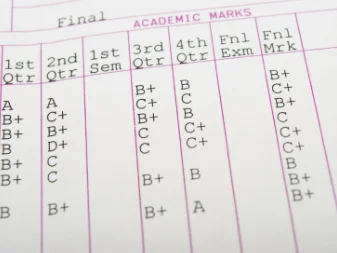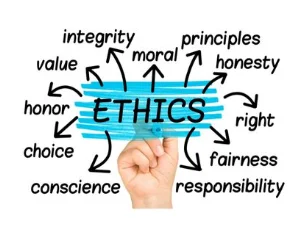Cheating in tests and other forms of academic dishonesty are still a big problem among today’s students.
The elements contributing to this behavior are complex, involving aspects such as fierce competition, high expectations, and the desire to improve grades.
Conversely, cheating can have extremely negative repercussions, not only academically but also ethically. This post aims to highlight the significance of encouraging integrity and providing a fair academic environment by investigating the factors that lead students to cheat and highlighting the potential consequences of such behavior.
Reasons for Cheating
1. Pressure to Perform

Students frequently cheat because they feel too much pressure to achieve well.
A stressful atmosphere is due to severe academic competition and high expectations from parents, peers, and even oneself.
Students might cheat to achieve these expectations, keep their grades up, or secure prospects for scholarships, admissions, or future professions.
2. Academic Competition
Students get motivated to cheat because of the intense rivalry in their academic fields. The drive to exceed one’s contemporaries and reach the highest ranks can generate an environment marked by cutthroat competition.
Some students may feel forced to cheat in these circumstances to gain an advantage over their peers and ensure academic achievement, scholarships, or other prizes.
3. Parental Expectations
Students under great pressure from their parents to succeed academically and fulfill particular benchmarks may resort to dishonest techniques.
Some kids may feel pressured to cheat to achieve the required outcomes and meet their parents’ expectations because they fear disappointing their parents or receiving their displeasure.
4. Lack of Preparation
Students may also turn to cheating since they must adequately prepare for their exams. When confronted with excessive coursework, time constraints, or insufficient comprehension of the subject matter, some students may cheat as a shortcut to attain the desired marks.
When this occurs, dishonesty becomes a means by which individuals can make up for their lack of preparation and escape the repercussions of their bad performance.
5. Procrastination
When students continuously put off studying or finishing their projects, they risk being overwhelmed as the due dates for those tasks draw near.
As a consequence of this, some students may turn to cheating as a last-ditch effort to fulfill the criteria, avoiding the obligation to put in the appropriate amount of work and time for true learning.
6. Inadequate Study Habits

Students who have yet to develop healthy study habits may experience desperation when confronted with tests and may cheat to make up for their lack of preparation.
7. Laziness
Some students may lack the motivation or unwillingness to put in the essential effort and dedication required to succeed academically.
Even so, they could cheat as a shortcut to acquiring the grades they want with the least effort rather than devote time and effort to studying and preparing.
Consequences of Cheating
Academic Repercussions
Exam cheating is a serious academic offense that can result in severe academic consequences. Once found cheating on exams, you may suffer harsh punishments, including being unable to pass the exam, obtaining a lower mark, or even being expelled from your school or university.
The student’s academic record may be tarnished, future chances may be restricted, and the student’s trustworthiness and credibility within the educational community may be damaged due to these effects.
Failing Grade
Students who guilty of cheating on an exam or assignment run the risk of receiving either a zero or a drastically lower score for the item in question.
Notably, this may harm their overall academic performance, which may, in turn, affect their grade point average and the academic opportunities they have in the future.
Academic Probation
Students placed on academic probation are subject to close monitoring of their academic achievement for the duration of their probationary period.
Academic probation is a form of disciplinary action. This can serve as a deterrent for future misbehavior by limiting access to some benefits, such as participation in extracurricular activities, and can also limit access to certain privileges.
Ethical and Personal Consequences

There are personal and ethical repercussions that come along with cheating. It destroys a person’s sense of personal integrity and the principles of honesty and fairness.
Because of their unethical behavior, students could suffer guilt and shame and reduced self-esteem.
In addition, dishonesty in academic settings hinders true learning and personal development by robbing students of the opportunity to build necessary skills and knowledge by applying their honest efforts.
Damage to Personal Integrity
If you cheat on your tests, it can do serious damage to your reputation. The individual’s sense of honesty, moral values, and trustworthiness are all diminished as a result.
Cheating is unethical and reflects poorly on the character of the student who engages in it since it goes against the values of integrity.
A breach of one’s integrity can have far-reaching effects, hurting not just one’s relationships but also one’s reputation and sense of oneself.
Loss of Trust and Reputation
When someone cheats, their reputation suffers, and they lose the trust of their peers. If other students find out that a student cheated, their reputation gets damaged, and questions about their capabilities and accomplishments emerge.
The individual’s peers, professors, and future institutions will likely cast doubt on their honesty, which will have repercussions for their relationships, recommendations, and possibilities for academic and professional success.
Affects job search
Cheating can have far-reaching repercussions that go well beyond the confines of the academic world. When potential employers find out a candidate has a history of cheating, it raises questions about the prospect’s ethics and integrity.
Because companies place a high value on persons with a strong moral compass and a history of integrity in their work, this can harm job search prospects.
Emotional Impact of Cheating in online tests
1. Guilt and shame

Students might suffer major mental and emotional repercussions, including feelings of dishonesty and embarrassment if they cheat on online examinations.
They may have a sense of moral transgression since they know they have engaged in dishonest behavior, which can weigh hard on their conscience.
The realization that they have violated both their standards of morality and their integrity gives rise to feelings of guilt. Similarly, shame originates from the anxiety of fear of being discovered and evaluated by others.
These feelings have the potential to be overwhelming, which can lead to increased tension and worry, and the negative image of oneself.
Students’ emotional well-being and overall mental health can be profoundly influenced by the internal conflict they experience between their aspiration to achieve success and their recognition of the immorality of some behaviors.
2. Stress and Anxiety
Students who cheat on their online examinations are likely to experience increased levels of stress and worry.
Excessive tension and anxiety can be brought on by factors such as the dread of being caught, the pressure to perform well, and the constant worry about the consequences of cheating, all of which can contribute to the fear of being caught.
3. Self-reflection and Regret
Students who cheat on online tests frequently experience feelings of self-reflection and regret later on.
After giving it some thought, individuals could become aware of the ethical ramifications of their conduct and experience regret over the fact that they compromised their integrity.
The realization that cheating is detrimental to one’s own personal development, learning, and the acquisition of necessary skills is the source of the remorse.
Lastly, this self-reflection can result in a profound sense of disappointment and a strong motivation to improve upon previous errors in the future.
